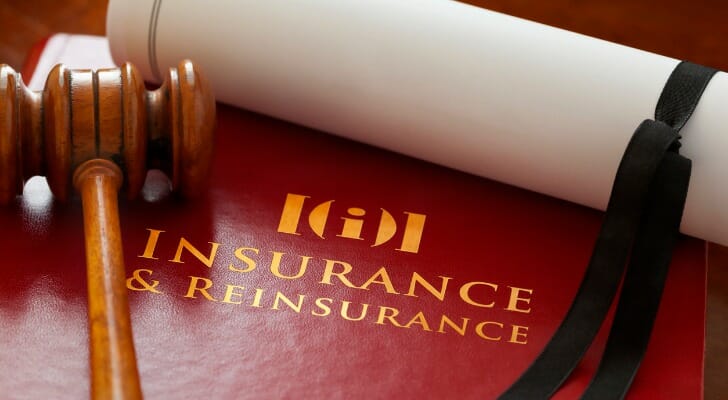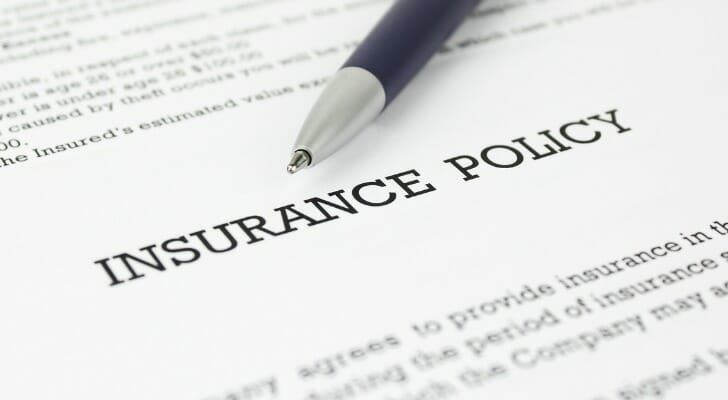 You buy insurance to protect yourself and your things. So how do insurance issuers protect themselves? Well, reinsurance is insurance for insurance companies. It minimizes the risk of any single event, disaster or another emergency. Here’s a breakdown of how reinsurance works for insurance companies.
You buy insurance to protect yourself and your things. So how do insurance issuers protect themselves? Well, reinsurance is insurance for insurance companies. It minimizes the risk of any single event, disaster or another emergency. Here’s a breakdown of how reinsurance works for insurance companies.
How Does Reinsurance Work?
You pay for insurance coverage in case of an emergency. For individuals, families and even businesses, insurance exists for their protection. When insurance companies take on that risk, they look for ways to minimize it. Reinsurance reduces an insurance company’s liabilities in the event of a catastrophe and minimizes the burden of one single insurance company.
Reinsurance kicks in to alleviate the cost of a single insurance company. Instead, many insurance companies will cover the cost of a major loss. If reinsurance doesn’t exist, a single insurance company could face a financial catastrophe of its own, and possibly go bankrupt.
After Hurricane Harvey in 2017, the Federal Emergency Management Agency (FEMA) submitted $1 billion in reinsurance claims to 25 reinsurers. The agreement said that once losses went over $4 billion in paid flooding claims, reinsurance would kick in. In total, Hurricane Harvey cost $125 billion.
For main insurance companies covering a specific area, a catastrophe like Hurricane Harvey can bring financial ruin. That is especially true if one company provides the majority of insurance coverage in a given area. Reinsurance reduces their risk in the same way home, car and flood insurance reduces your risk of paying for extreme damages to your home and vehicles.
Reinsurance History
According to the Reinsurance Association of America, reinsurance dates back to the 14th century. It typically was used for marine and fire insurance. Now, it covers the entire insurance market. Insurance companies dedicated departments to it, but there are entire companies focusing on it. Those latter companies in the U.S. are licensed here, but there are some beyond the country’s borders that don’t bother obtaining licenses.
Each state has its own standards for such insurance. In most cases, states want assurances that a company is solvent and acts appropriately in the market. Companies are often scrutinized for their contract terms and levels of consumer protection.
Types of Reinsurance
 There are a couple of different reinsurance options for insurance companies to use. Each covers a specific need, though some tend to be broader than others. If an insurance company isn’t quite sure what kind of reinsurance it will need, it likely will go as broad as possible. Here are the four types of reinsurance:
There are a couple of different reinsurance options for insurance companies to use. Each covers a specific need, though some tend to be broader than others. If an insurance company isn’t quite sure what kind of reinsurance it will need, it likely will go as broad as possible. Here are the four types of reinsurance:
1. Treaty
This type of reinsurance covers broad groups of policies. Think all auto or homeowner’s insurance. Once the contract is agreed upon between the reinsurance company and the primary insurance, the terms usually go into effect immediately, covering all new and current policies until the agreement expires or is canceled.
2. Facultative
This reinsurance covers specific, individual risks, instead of broad groups of policies. For instance, skyscrapers and hospitals would fall under this type of coverage. This type of coverage gives the reinsurer the power (faculty) to accept or reject a part or parts of a policy. Meanwhile, treaty policies require signatures on all parts of an agreement.
3. Proportional
Proportional agreements allow the primary company and reinsurer to share the premiums and potential losses from the policyholder. Consequently, this might apply to property insurance. Meanwhile, the reinsurer also reimburses a company for costs including processing and business acquisition
4. Non-Proportional
In non-proportional agreements, the primary company retains a certain level of risk and pays the reinsurer a fee for coverage above that amount. This might come up with individual policies or a major emergency. That level of risk is the priority or retention limit. As a result, professionals also consider this type of insurance “excess-of-loss” insurance. This coverage typically applies only to catastrophic events.
The Bottom Line
 For insurance companies to minimize risks on their own, they’d need insurance just like the rest of us. That’s why reinsurance exists: to act as insurance for insurance companies. If there’s ever a major event, like a catastrophic natural disaster, insurance companies use reinsurance to cover themselves.
For insurance companies to minimize risks on their own, they’d need insurance just like the rest of us. That’s why reinsurance exists: to act as insurance for insurance companies. If there’s ever a major event, like a catastrophic natural disaster, insurance companies use reinsurance to cover themselves.
Money comes from somewhere, whether it’s insurance companies or reinsurance companies. However, as insurance companies can make large payouts to cover costs of varying degrees, there’s still a threshold that could put them in financial danger. That’s where this kind of insurance comes in — to protect insurance companies.
Tips for Buying Insurance
- A financial advisor can help you understand the role insurance can play in your financial plan. Finding a financial advisor doesn’t have to be hard. SmartAsset’s free tool matches you with up to three vetted financial advisors who serve your area, and you can interview your advisor matches at no cost to decide which one is right for you. If you’re ready to find an advisor who can help you achieve your financial goals, get started now.
- Insurance costs can change over time, and so can your needs. As a result, it’s important to review your policy often — annually or even every six months, depending on your plan — to make sure you have the right coverage. However, if you need to add or remove something, ask your insurance company to see how the price changes and what that means for your coverage.
- When you have a major life event, getting the right type of insurance is part of the protocol. Don’t let something fall by the wayside, even accidentally. Meanwhile, without proper coverage, you may pay much more than you expect when something comes up.
Photo credit: ©iStock.com/stocknshares, ©iStock.com/lionvision, ©iStock.com/skynesher